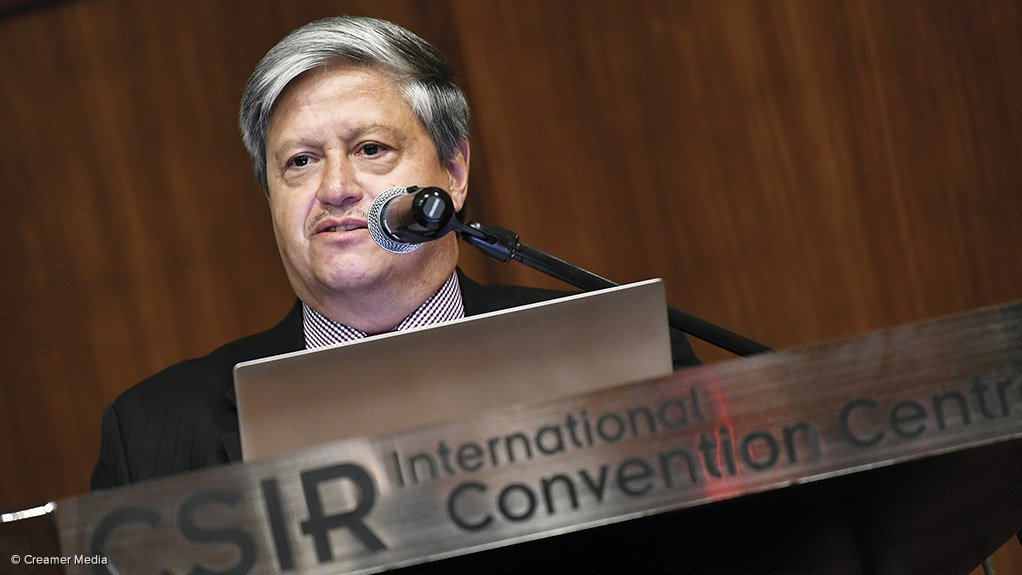The publication of the long-awaited Integrated Resource Plan (IRP) in October last year will be a significant focus area for State-owned energy researcher the South African National Energy Development Institute (Sanedi) at this year’s Africa Energy Indaba.
“The publication of the IRP provides clear guidelines for the amounts of alternative energy sources that have to be brought on-stream to diversify the current coal-dominated energy mix in the country. This is also a positive development for project developers and consumers,” enthuses Sanedi energy efficiency and corporate communications GM Barry Bredenkamp.
He further highlights that announcements by Mineral Resources and Energy Minister Gwede Mantashe about the relaxing of current regulatory limitations for large-scale rooftop photovoltaic technology is another positive development. “This could result in a further hastening of the transition to renewable energy in South Africa.”
Bredenkamp confirms that Sanedi’s presence at the Africa Energy Indaba, taking place at the Cape Town International Convention Centre on March 3 and 4, will focus on renewable-energy developments, as this remains a key mandate for the institute.
“We certainly don’t have to reinvent the wheel. There are a lot of African countries that are doing exceptional work in this area. We can learn from them and adopt and customise certain forward-thinking policy and legislation for our purposes in South Africa.”
Bredenkamp adds that Sanedi can also share experience and knowledge from its own initiatives, while the Renewable Energy Independent Power Producer Procurement Programme (REIPPPP), which has received global accolades for innovation, will also feature prominently.
Given the current fiscally constrained state of the local economy, Bredenkamp argues that using independent power producers (IPPs) with private investment is the most ideal model to construct new-generation infrastructure in the future.
Bredenkamp points out that South Africa is “eagerly awaiting” the fifth window of the REIPPPP, which he believes will be important in meeting the targets set out in the IRP.
While bureaucracy and red tape in government generally delay IPP projects, Bredenkamp argues that government is making a concentrated effort to reduce the red tape associated with implementing large infrastructure projects.
“Issues of revenue loss for existing utilities are a challenge that needs to be addressed in each case, especially in view of the principle of striving towards ‘least-cost’ supply options for new-generation capacity.”
Bredenkamp stresses that, even since the previous Indaba last year, a lot can happen in terms of technological development for energy, particularly for renewable-energy sources. Therefore, attending this event and keeping informed about such developments becomes more important, he adds.
With the Indaba being a well-attended and supported event, Bredenkamp emphasises that this provides an ideal platform to network with other attendees, particularly as energy generation is currently very topical in Africa.
Climate change and the pricing of carbon in the context of developing countries are also very topical, he adds.
“Sanedi is always given the opportunity to participate in the various expert panel discussions debating, for example, renewable energy, energy efficiency and smart grids. Sanedi will participate at this year’s event as an exhibitor in the exhibition pavilion.”
Further, Sanedi will highlight the institute’s key focus areas, including carbon capture and storage, cleaner mobility, renewable energy and energy efficiency.
Bredenkamp will also moderate an expert panel discussion, titled Decentralisation: the role of renewable energy and mini- and off-grid solutions, at the Indaba.
Edited by: Zandile Mavuso
Creamer Media Senior Deputy Editor: Features
EMAIL THIS ARTICLE SAVE THIS ARTICLE
ARTICLE ENQUIRY
To subscribe email subscriptions@creamermedia.co.za or click here
To advertise email advertising@creamermedia.co.za or click here













